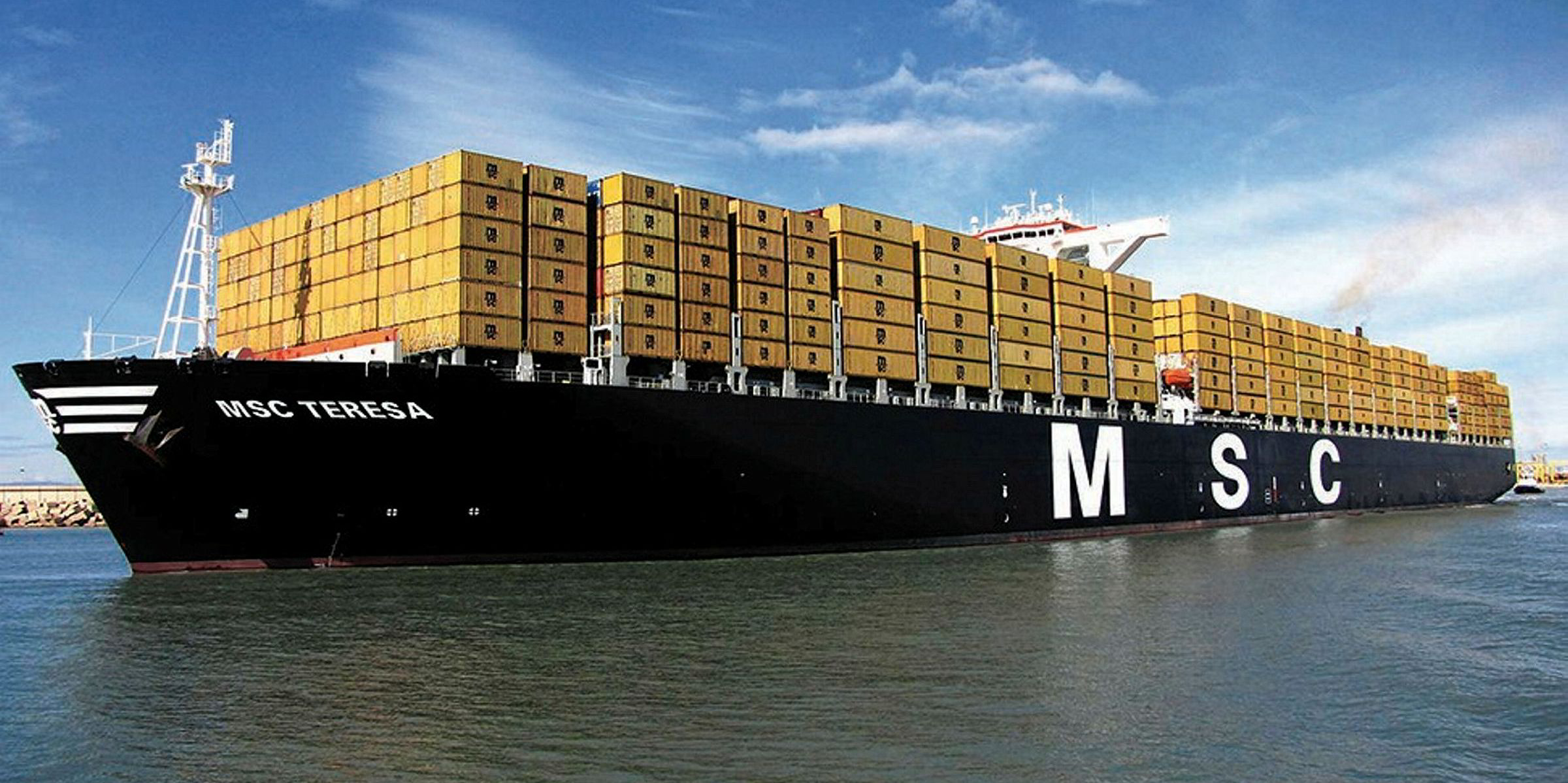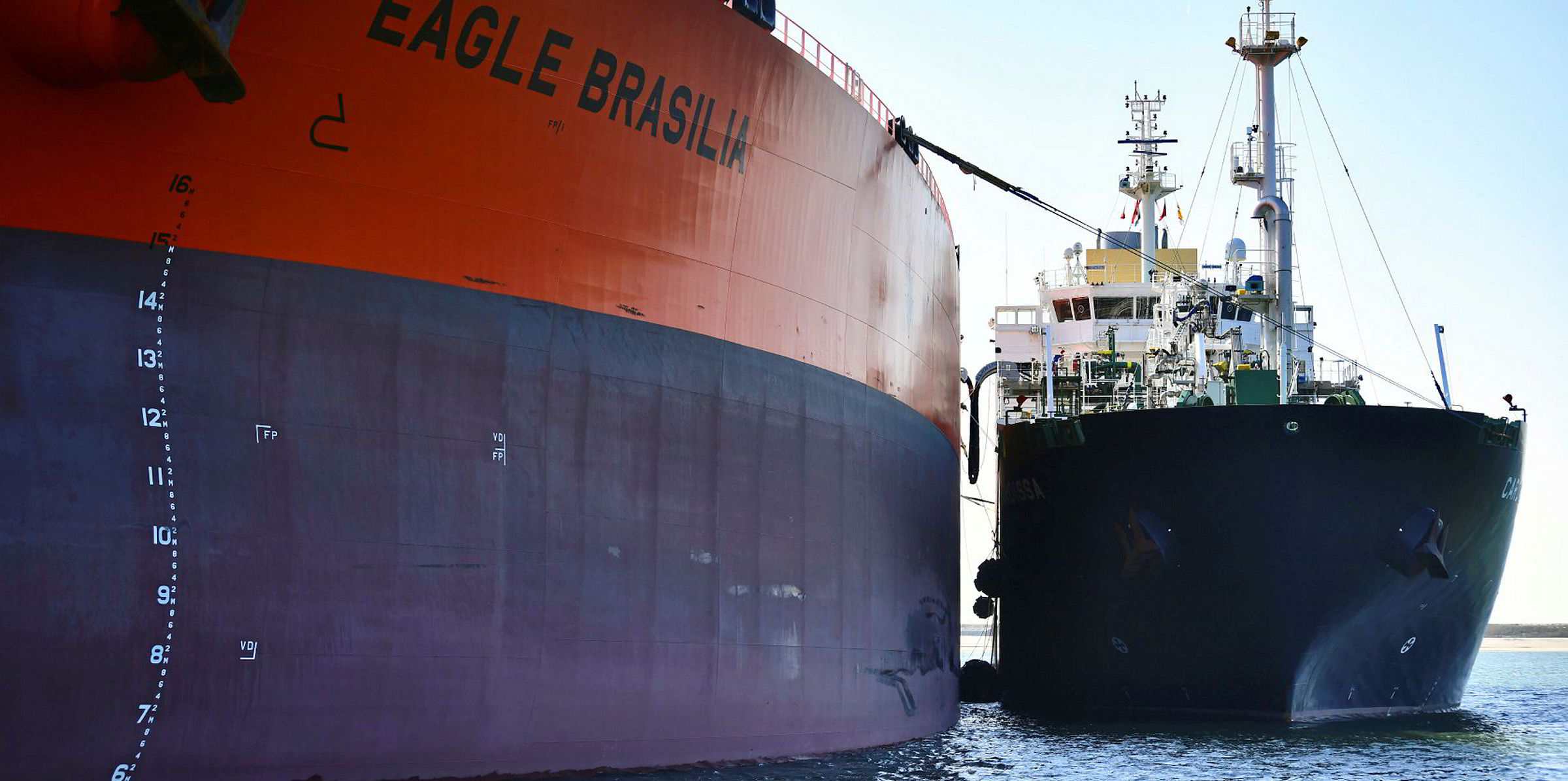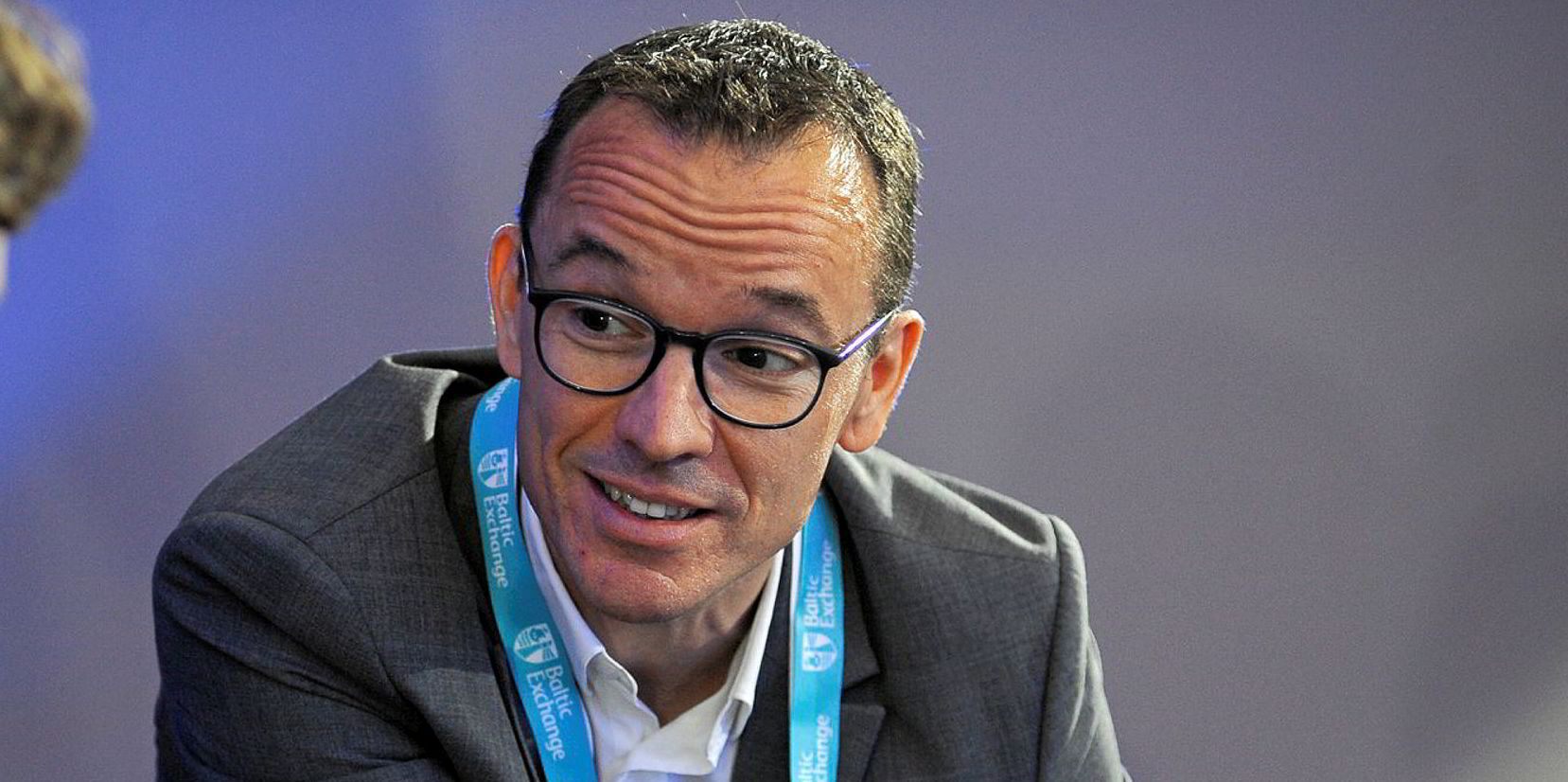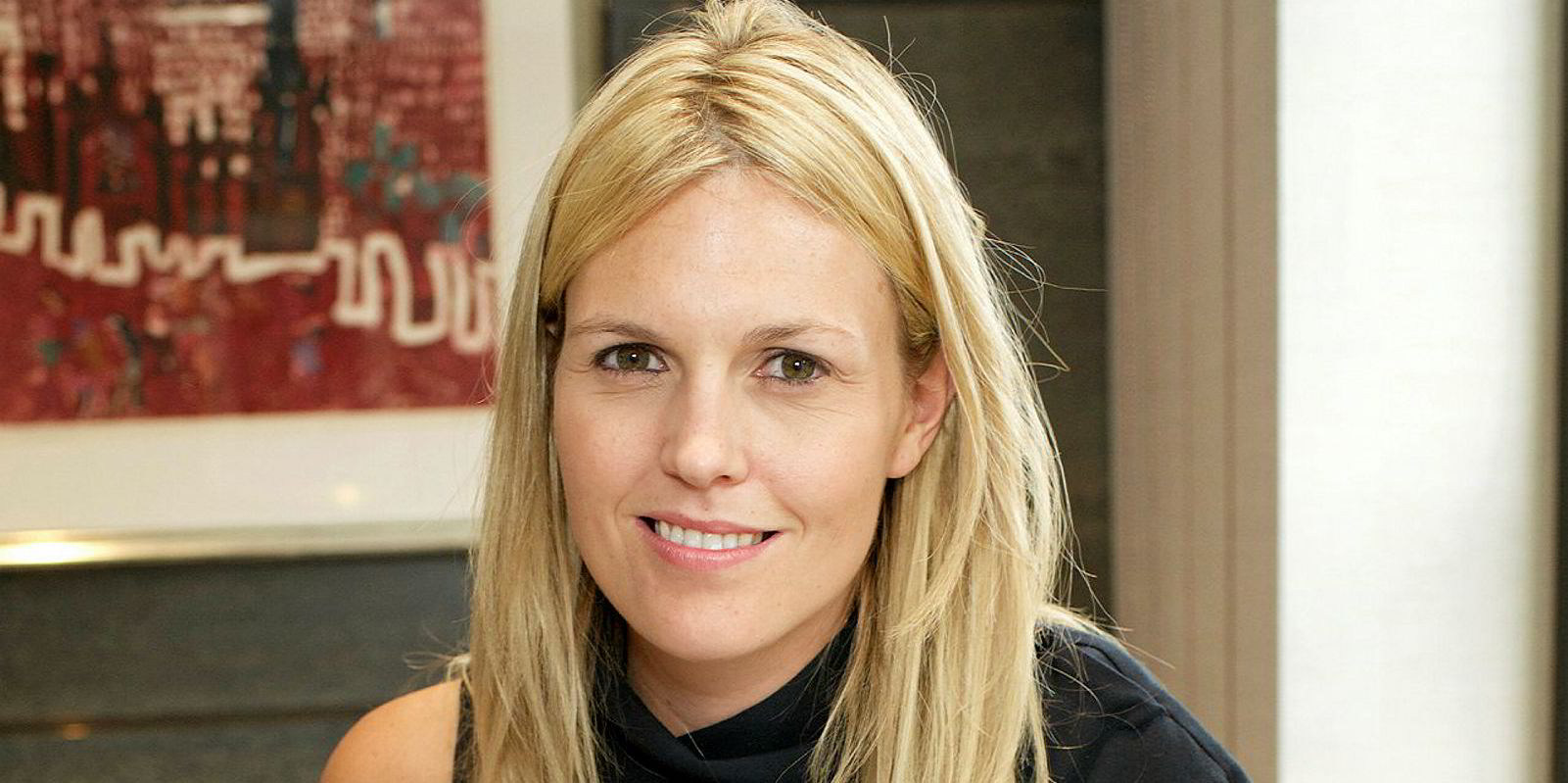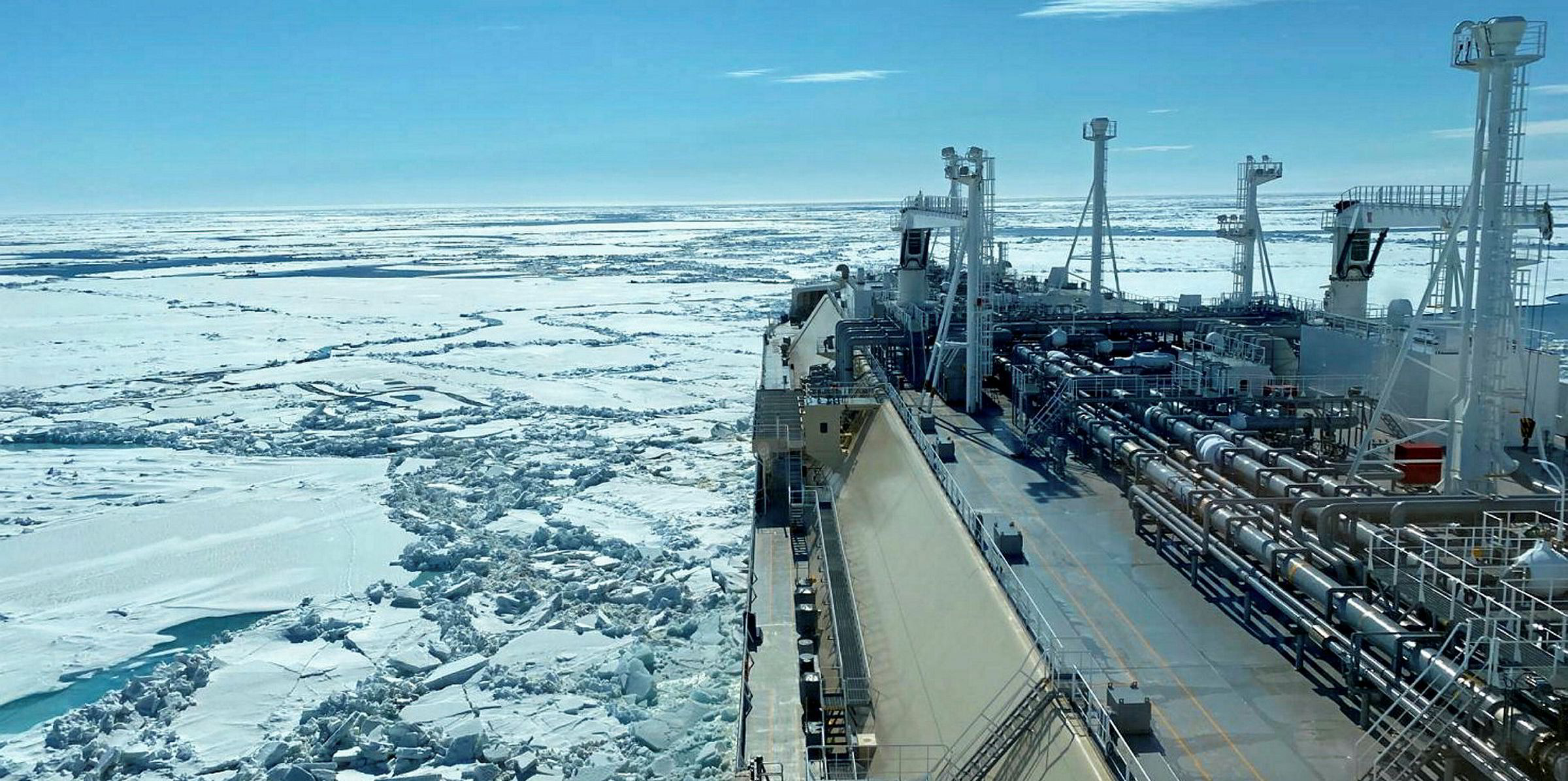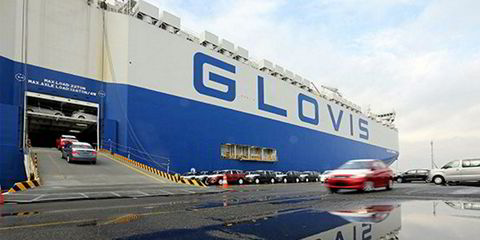A Brussels-based environmental think tank has named Mediterranean Shipping Co as the seventh largest emitter of carbon in the European Union.
Transport & Environment (T&E) ranked the container shipping company behind six of Europe's biggest power plants.
MSC emitted 10.72m tonnes of CO2 during 2019, overtaking low-cost airline Ryanair in the rankings (see below), as well as two power stations in Germany and Poland, according to the research.
The T&E analysis is based on data compiled from the EU Monitoring, Reporting and Verification (MRV) system, the EU emissions trading scheme and Alphaliner data.
The European Parliament will vote on Monday on whether shipping should be included in the EU carbon market, which the think tank has called "a chance to finally regulate the sector’s climate impact".
MSC reaction
MSC told TradeWinds it "fully supports" reporting CO2 emissions transparently and precisely in the EU MRV scheme, which is mandated by EU legislation.
But the container line emphasised that the data that is reported should be "analysed accurately and take operational realities fully into account" — something that MSC said the T&E research has not done in ranking the EU's top-10 polluters.
MSC said the T&E analysis "offers again an incomplete analysis of these data and, therefore, does not give an accurate picture of the emissions from the shipping sector".
"In particular, the T&E analysis fails to take a number of operational aspects of MSC’s services fully into account, and thus does not offer a complete assessment of our role and impact in terms of emissions," the line said in a statement to TradeWinds.
MSC said it is "heavily investing" in its fleet and low-carbon technology and is "actively exploring and trialling" a range of alternative fuels.
"To help bridge the gap between shipping today and the zero-carbon future, MSC was the first major shipping line in 2019 to offer clients an option to fully compensate the unavoidable carbon emissions caused by the transport of their cargo through participating in MSC’s Carbon Neutral Programme," the line added.
Next week's vote on carbon
T&E said its analysis shows that even if the European shipping industry was required to buy EU pollution permits, the sector would still be paying seven times less for its emissions than trucks, which pay fuel taxes.
The EU Green Deal commits to include ships in the EU carbon market, while members of the European Parliament (MEPs) want the money raised to be invested in greener maritime technology, including hydrogen.
As well as the inclusion of shipping in the EU emissions trading system, T&E wants to see CO2 standards that apply when ships are in operation.
“The EU carbon market will raise much needed funds for greener shipping technology, but that’s not enough to clean up the sector. It needs to be done in tandem with CO2 standards that require ships to operate more efficiently and use green hydrogen," said Faig Abbasov, shipping manager at T&E.
"To achieve full decarbonisation by 2050, European shipping must improve its carbon intensity by more than 40% between now and 2030.”
The think tank added that the CO2 standards should be set at stringent levels and should deliver efficiencies on top of market-driven improvements.
“Power and other sectors are cutting their emissions year in year out in response to EU regulations, but shipping pollution is left untouched," said Abbasov.
"We can’t be at the mercy of global trade trends to tame maritime pollution. MEPs should vote for a system that finally makes ships pay for their emissions and reinvests the money in cleaner boats.”
The T&E rankings in full

